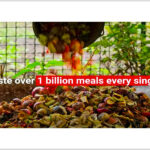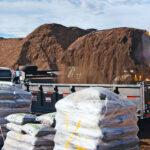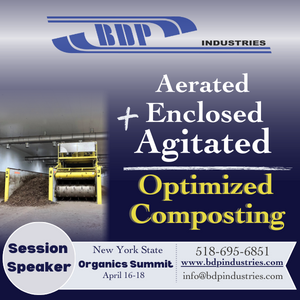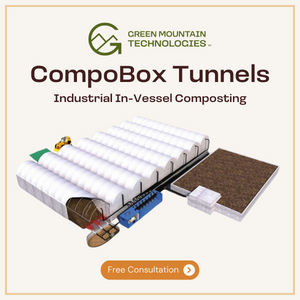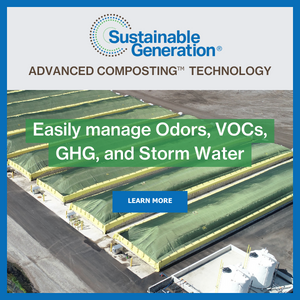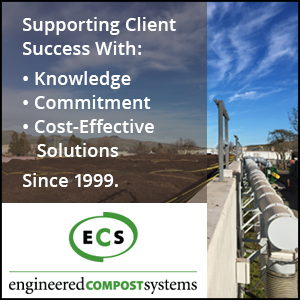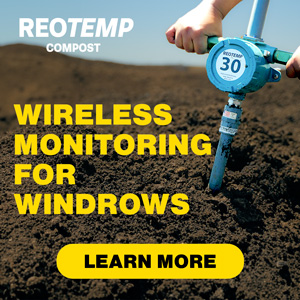David Paull
Recycling is ingrained in the majority of households’ habits. The lead up to recycling becoming mainstream, and not simply an environmental movement, took a lot of different marketing and engagement strategies, two important pillars of education in both the public and private sector. Today, composting is having its mainstream moment, becoming more prolific and participated in/offered everywhere. The composting movement is happening and that includes all scales, from backyard and community, to industrial scale.
Outside of the Northeast and West coast where landfill space is shrinking and government mandates are supplying fuel to the composting movement, municipalities and communities of all sizes are putting forth a growing investment to bring composting to single and multifamily homes, restaurants, cafes, universities, hospitals, offices, stadiums and other food service providers of varying scale. And for most, composting is an added cost that comes with habit changing efforts. In short, often it isn’t the easiest route to take.
Changing The Vernacular
We started CompostNow Inc. in 2010, a residential and commercial food scraps collection service that collaborates with local composting operations (including community gardens, urban farms and a regional composter). With the markets we were in, primarily in the Southeast, we knew education was going to be a critical component of our success and longevity. We never approached our business thinking of it as waste management. From the early days we were using phrases like “closed loop,” “divert waste,” “build soil.” All uncommon in the world of waste.
To be sustainable long-term and achieve the outcomes we desire (reduce waste and build soil), we must frame the conversation differently and engage the communities we are in by presenting the experience of composting in a new way. We need to determine how to build culture around composting and work towards taking this out of an environmental movement and into the mainstream. Without marketing and engagement to help people understand the enormous benefit and opportunity composting creates for our communities, composting could suffer the same perceived reaction as garbage. Keep it out of sight, out of mind and all is well.

CompostNow’s engagement includes: attend farmers markets, speak in classrooms, meet with city officials and other community stakeholders, partner with community farms and gardens, and tour groups through its composting locations.
Organizing And Activism
Much of this needed marketing and engagement has come in the form of community organizing and activism. Community composters in cities and towns across the country have led the way in centering the messaging and importance of composting for the regeneration of soil health. Other organizations have sprung up around this movement providing necessary help in convening community stakeholders to support this work and expand its reach.
One such organization is Food Well Alliance in Atlanta, Georgia. Food Well Alliance, alongside the Georgia Recycling Coalition, was instrumental in organizing the necessary convenings of stakeholders working towards amending statewide composting rules to create a more supportive regulatory structure for small and mid-scale composters. Successful passing of this rule change in Georgia is an example of positive progress happening around the country in countless communities where composting is coming out of peripheral conversations and into everyone’s focus.
Many cities have launched pilot programs or full on curbside collection of organics, and are facing tremendous challenges getting people to participate and put the right thing in the right bin. Some have had to scale back or completely stop their programs. Getting people to do something new is extremely difficult.
No False Starts
Asking people to shift their cultural norms requires a better designed approach to a practice like composting. This is of paramount importance for many reasons. A rule at CompostNow is “No false starts.” When we set up a composting program for a certain member, we do all that we can to ensure the success of that member and deliver the highest service quality possible. We implement cart and bin swaps, delivering a clean bin to the member every time.
Additionally CompostNow engages our members around their impact. With our dashboard, members can log in and track their diversion metrics, see how much finished compost they have earned and choose whether or not they want that material back for their own gardening. Or they can share it with a community garden or farm near them, thereby cycling nutrients into their local food system. With something “new” like composting or where it is an added cost, we have to get it right and do it well out of the gate. Otherwise it is the first program to be cut, people lose confidence in it and it sets the progress of composting back further.
In each community where CompostNow started, we attended farmers markets, spoke to classrooms of all sizes, met with city officials and other community stakeholders, partnered with community farms and gardens, toured countless groups through our composting locations, and participated in a range of other community events and activities. It has been a full on effort of bringing people closer to the food they consume through the cycling of their nutrients in their food scraps back to the soil through composting. To us it wasn’t about being “green” or “progressive” or “hippy.” It was simply obvious that this was the “smart” and the “right” thing to do — and that is what we believe is most accessible to the masses.
As we continue to grow this movement in the communities where we operate, CompostNow seeks to keep this messaging consistent and accessible. We work to maintain, deepen, and expand all of the relationships mentioned above and continuously strive to perform our service to the highest standard so that our members have an exceptional experience with composting. We believe these are the critical components for composting to rise into the mainstream.
David Paull is the Chief Impact Officer at CompostNow Inc.



